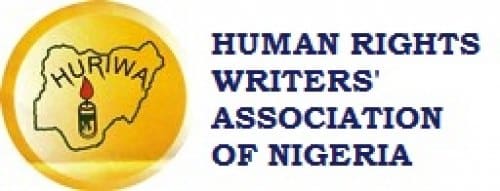The Human Rights Writers Association of Nigeria (HURIWA) has expressed deep concern over what it calls a troubling pattern of market fires and demolition exercises in Lagos, particularly in areas dominated by Igbo traders. The group warned that the incidents threaten both national unity and economic stability.
A major fire broke out Tuesday night at the Alaba International Market in Ojo, destroying dozens of shops and warehouses. Goods worth billions of naira were lost before firefighters could bring the situation under control.
The Lagos State Fire and Rescue Service confirmed that its personnel responded to the incident, but videos circulating on social media showed devastated traders watching helplessly as flames engulfed parts of the market.
In a statement issued in Abuja, HURIWA’s National Coordinator, Emmanuel Onwubiko, described the Alaba fire as a “tragic addition” to a growing list of incidents that appear to target the economic interests of a particular group in Lagos.
He called for an independent investigation into the cause of the fire and the response of emergency agencies, stressing that transparency and accountability are essential to restoring public confidence.
HURIWA also linked the incident to recent demolition exercises at major business hubs such as Alaba Rago, Abule Ado, Ikota, and Lekki, where several traders of southeastern origin reportedly lost their properties. The association noted that these actions followed the controversial demolition at the Lagos International Trade Fair Complex, despite widespread calls for dialogue.
Reaffirming that Lagos is a city built by people from all parts of Nigeria, HURIWA urged Governor Babajide Sanwo-Olu to publicly assure residents that no group would be subjected to discriminatory economic policies or selective enforcement of urban laws.
The association also called on the state government to review recent demolitions and compensate affected traders whose properties were destroyed without due process.
In addition, HURIWA appealed to the Federal Government, the National Human Rights Commission, and the National Assembly to closely monitor developments in Lagos and intervene where necessary to protect citizens’ rights and livelihoods.




